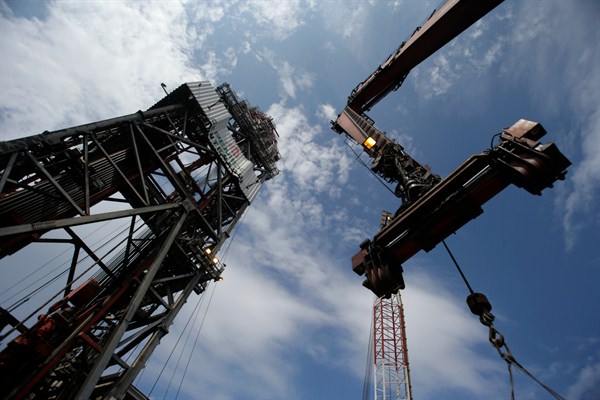On Dec. 5, Mexico held its first-ever auction for deepwater oil blocks in the Gulf of Mexico. A total of eight out of 10 blocks were awarded to various consortiums of leading international oil companies, such as ExxonMobil, Chevron, BP, Total and Statoil. The Mexican government estimates that the offshore fields hold as much as 11 billion barrels of oil and natural gas.
The tender brought some much-needed economic relief for Mexico. As 2016 comes to a close, the country faces the most severe crisis originating north of the border in the United States since the 2008 financial meltdown, in the form of Donald Trump’s presidential victory. Trump has repeatedly promised to take a more adversarial approach with Mexico on issues such as immigration and trade, and most notoriously pledged during the campaign to wall off the U.S.-Mexico border.
In this climate, the oil auction represented several big wins for the Mexican government. It was overdue payoff for President Enrique Pena Nieto’s 2013 energy reforms, which represented a political feat when they were passed but haven’t fully panned out economically. The reforms liberalized Mexico’s entire hydrocarbons industry, opening it to foreign investment—a longstanding political taboo—along with most of the country’s power sector, both of which had been kept under public monopolies for decades.

